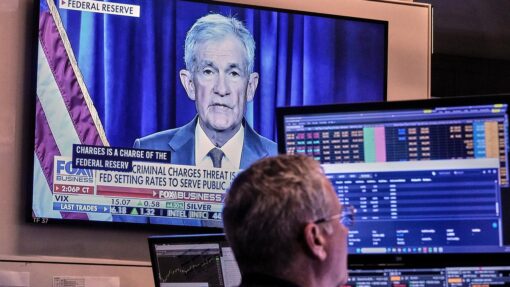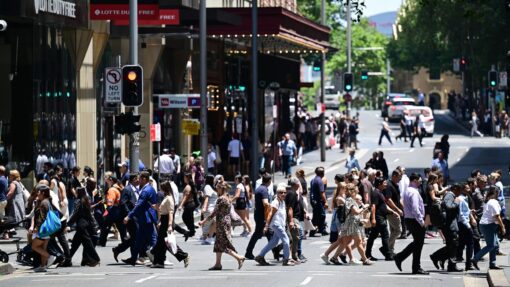Treasurer confident worst of inflation has passed
Andrew Brown and Paul Osborne |
Treasurer Jim Chalmers has admitted the coming year will be challenging for the economy, but is confident the worst of inflation has passed.
Ahead of a widely expected interest rate rise when the Reserve Bank meets on Tuesday, Dr Chalmers said inflation was the biggest economic challenge in the year ahead.
“This will be a challenging year for our economy and the global economy and for our country, but we can do more than just batten down the hatches and ride it out,” he told parliament on Monday.
“We will see this inflation moderate, we will keep building our buffers, we will keep building an economy that is stronger.”
The most recent figures showed yearly inflation reached 7.8 per cent.
However, Dr Chalmers was optimistic in the figure falling in coming months.
“The worst quarter for inflation last year was actually the March quarter, the fastest growth in inflation was at the beginning of the year, not at the end of the year,” he said.
“(Inflation at) 7.8 per cent is obviously unacceptably high and puts a lot of pressure on families, but we expect that inflation is starting to moderate.”
Retail figures released on Monday saw sales volumes fall for the first time since the September quarter in 2021.
The Australian Bureau of Statistics said retail sales volumes fell 0.2 per cent in the December quarter, which followed a 0.3 per cent rise in the September quarter.
“Retail sales volumes fell for the first time since the September quarter 2021, with volumes falling across all non-food industries as consumers tightened discretionary spending in response to mounting cost of living pressures,” ABS retail statistics head Ben Dorber said.
Retail prices remain high, but price growth slowed to 1.1 per cent in December because of flat food retailing prices and additional discounting during Black Friday sales.
Department stores had the largest volume fall (-2.9 per cent), followed by other retailing (-2.4 per cent), clothing, footwear and personal accessory retailing (-2.3 per cent) and household goods retailing (-2.0 per cent).
Retail trade volumes fell consistently across the country, with five of the eight states and territories recording a fall.
Shadow treasurer Angus Taylor said the likely interest rate rise would mean more financial pain for mortgage holders.
“2023 is going to be a tough year for hardworking Australian families,” he told reporters in Canberra.
“They’re seeing increases in their energy bills. They’re seeing increases in their mortgage payments, increases in their rents, increases across the board with rising inflation.
“Double-income families are struggling to make ends meet, having to put in extra hours at work at exactly the time they’re supposed to be picking up the kids. This is tough.”
Financial comparison site Canstar estimates home loan repayments for the average $500,000 loan will cost close to $12,000 more a year from Tuesday.
If, as predicted, there is a 25 basis point rate rise, it will increase mortgage repayments since April 2022 on a $500,000 loan over 30 years by $969 per month or $11,628 per year.
Canstar’s Steve Mickenbecker said this was the equivalent of the average annual costs for home and contents, car and health insurance, electricity, gas, internet and mobile phones combined.
However, refinancing into a lower rate loan could cut the impost by almost half, Canstar estimated.
AAP


